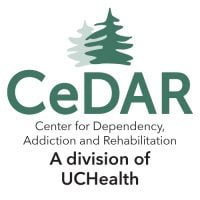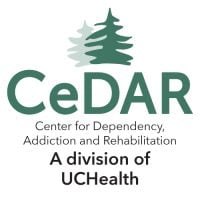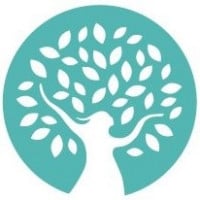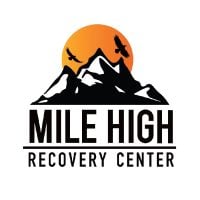Spanish Clinic - 39th Avenue
Drug Rehab Center in Denver, Colorado
- Substance Abuse
- Opioid Addiction
- Dual Diagnosis
- Alcoholism
Spanish Clinic - 39th Avenue in Denver, Colorado, is an addiction treatment facility that provides comprehensive treatments for addiction and substance abuse, including specialized, individualized care, evidence-based therapies, group counseling, and accepts private health insurance. The facility is certified by Joint Commission and licensed as an Addiction Treatment Facility in Colorado.
About This Colorado Facility
Spanish Clinic - 39th Avenue is an addiction treatment facility located in Denver, Colorado. The facility offers comprehensive treatments for those suffering from alcoholism, substance abuse, opioid addiction, dual diagnosis, drug addiction, and mental health. Spanish Clinic - 39th Avenue is equipped with a multidisciplinary team of clinicians from various backgrounds which allows them to provide specialized, individualized care for each and every one of their patients. Their levels of care include detox, outpatient, dual-diagnosis, and intensive outpatient. In addition, the facility accepts private health insurance for their services.
At Spanish Clinic - 39th Avenue in Denver, Colorado, they provide comprehensive treatments for addiction and substance abuse. All clients participating in their treatment programs receive individualized treatment plans that are tailored to their particular needs. This includes evidence-based therapies such as cognitive behavioral therapy (CBT), solution-focused therapy, motivational interviewing, and dialectical behavior therapy, as well as relapse prevention. Furthermore, the treatment facility also offers group counseling, which is an important part of the recovery process. Additionally, Spanish Clinic - 39th Avenue is certified by Joint Commission, and is licensed as an Addiction Treatment Facility in the state of Colorado.
Genders
Ages
Modality
Additional
Conditions and Issues Treated
People who abuse drugs are likely to suffer from an addiction, which can cause serious health problems. When it comes to helping drug abusers get sober, there are many options to choose from. It is essential to state that there is no “”correct”” way of doing things. People are different, and they need different types of help to get over their addiction.
Many people who struggle with opioid addiction need to attend specific programs like methadone , Suboxone or Vivitrol clinics.
These types of programs will provide the patient with legal, prescription medications that can help them overcome their cravings for illegal opioids like heroin or fentanyl . If the patient has a chronic condition like Hepatitis C, they must undergo treatment before they can begin taking these medications.
Dual Diagnosis refers to someone who is both dealing with addiction and another mental health issue.
There are different kinds of Dual Diagnosis: A person who simultaneously experiences both a mental illness and an addiction disorder. Or, a person who experiences one or more coexisting (simultaneous) mental health conditions in addition to a primary substance use disorder.
Some conditions that commonly co-occur with addiction include:
- Personality Disorders (Borderline, Narcissistic)
- Mood Disorders (Bipolar Disorder, Depression, Anxiety Disorder)
- PTSD (Post Traumatic Stress Disorder), OCD (Obsessive Compulsive Disorder), ADHD (Attention Deficit Hyperactivity Disorder)
- Schizophrenia, Psychosis, Hallucinations, Delusions
Levels of Care Offered at Spanish Clinic - 39th Avenue
This center offers a variety of custom treatment tailored to individual recovery. Currently available are Detox, Dual-Diagnosis, Intensive Outpatient, Outpatient, with additional therapies available as listed below.
An addict may have to go through alcohol or drug withdrawal. While detox may be uncomfortable, it is not life-threatening. Detoxification allows the addict to rid the body of all traces of drugs or alcohol and gives the addict a clean slate for their recovery. In an inpatient or outpatient setting, detox can be managed medically.
Outpatient addiction treatment is beneficial for people who are able to function well in their day-to-day lives. It is recommended for people who are not yet ready to end their relationships with friends or family members who might be encouraging drug and alcohol use.
Intensive outpatient treatment is beneficial for:
- People who are able to attend treatment more than 3 times per week.
- People who do not meet the criteria for inpatient treatment.
- People who are able to contribute to their own recovery outside of the treatment center.
- People who are motivated towards recovery.
- People who are able to overcome addiction on their own without the need for higher levels of care.
Outpatient treatment programs provide drug and alcohol addiction treatment through individual sessions with a counselor, group therapy, 12-step meetings, and other activities to help individuals gain sober living skills. Most programs are designed for those individuals who have completed a medically supervised detoxification program and provide opportunities for clients to begin the process of early recovery.
Outpatient programs also offer a level of medical support as needed and psychological backing through therapy. Clients are encouraged to live at home, though there may be some flexibility regarding this requirement based on the circumstances and needs of each patient.
Outpatient treatment is perhaps the most common type of dual diagnosis program available. It does not pose a significant financial burden on patients. However, it is essential to note that outpatient treatment does not provide the support and supervision given in residential programs. Some addicts may need this level of support to maintain their sobriety.
Therapies & Programs
Different types of addiction treatment services are available. Within this article, group therapy is of interest due to its high success rate compared to individual therapy. Group therapy settings are beneficial because they allow recovering addicts to build a strong support network.
Benefits of group therapy are:
- Reduces feelings of isolation
- Immediate access to social support in the form of fellow addicts in recovery
- Lowers risk of relapse
- Increases rate of sobriety
- Builds coping skills that can be applied to everyday life
Trauma Therapy is a form of therapy that involves working with a patient to help them process and understand the past trauma(s) in their life. The idea behind it is that while some people can experience traumatic events and not have lasting psychiatric symptoms, many others will. In these cases, memories of the event get hidden from consciousness but continue to influence how the person processes and copes with things in their life. They may avoid situations that resemble what happened or become suddenly angry or irritated to a situation that reminds them of a past event.
With the help of a therapist, people can go back over memories and experiences. This helps them understand why they are having problems coping with certain situations and how they can change how they think and react to things. This therapy is typically done using techniques such as visualization, discussion, and writing down thoughts and feelings.
Trauma therapists will work with clients to help them understand their past and present relationships. Many times, patients may believe that something is inherently wrong with them or that they are unworthy of love. A therapist aims to correct these negative feelings and behaviors by helping the person realize that their actions do not reflect who they truly are.
One of the main goals of trauma therapy is to help clients express their emotions and talk about what they are feeling. This benefits both to increase awareness of how certain events have impacted them in the past and enables patients to realize that they can make changes in their lives.
Payment Options Accepted
For specific insurance or payment methods please contact us.
Is your insurance accepted?
Ask an expert, call (888) 674-0062
Additional Details
Specifics, location, and helpful extra information.
Denver, Colorado 80239 Phone Number(720) 335-6651 Meta DetailsUpdated November 25, 2023
Staff Verified
Patient Reviews
There are no reviews yet. Be the first one to write one.
Denver, Colorado Addiction Information
The Centennial State has slipped to a ranking of 12th in the country for drug abuse. Each year around 24% of the state's population uses illegal drugs while nearly 5% of its population abuses alcohol. Substance-related deaths in Colorado were responsible for 15.12% between 2008 and 2017. Fortunately, Colorado drug and alcohol addiction treatment are available to help a person overcome addiction.
Drug addiction in Denver, Colorado, is quite serious. In 2012, there were 974 drug overdose fatalities in the area, which has likely only gone up in recent years. The city has an estimated 34,000 marijuana users reporting past-month usage in 2016. The most common drugs abused are methamphetamine, heroin, and marijuana. Some popular treatment options include inpatient rehab, outpatient rehab, and detoxification programs.
Treatment in Nearby Cities
- Cortez, CO (262.7 mi.)
- Center, CO (155.4 mi.)
- Palmer Lake, CO (45.1 mi.)
- Parker, CO (18.1 mi.)
- Lamar, CO (167.0 mi.)
Centers near Spanish Clinic - 39th Avenue




The facility name, logo and brand are the property and registered trademarks of Spanish Clinic - 39th Avenue, and are being used for identification and informational purposes only. Use of these names, logos and brands shall not imply endorsement. RehabNow.org is not affiliated with or sponsored by Spanish Clinic - 39th Avenue.


